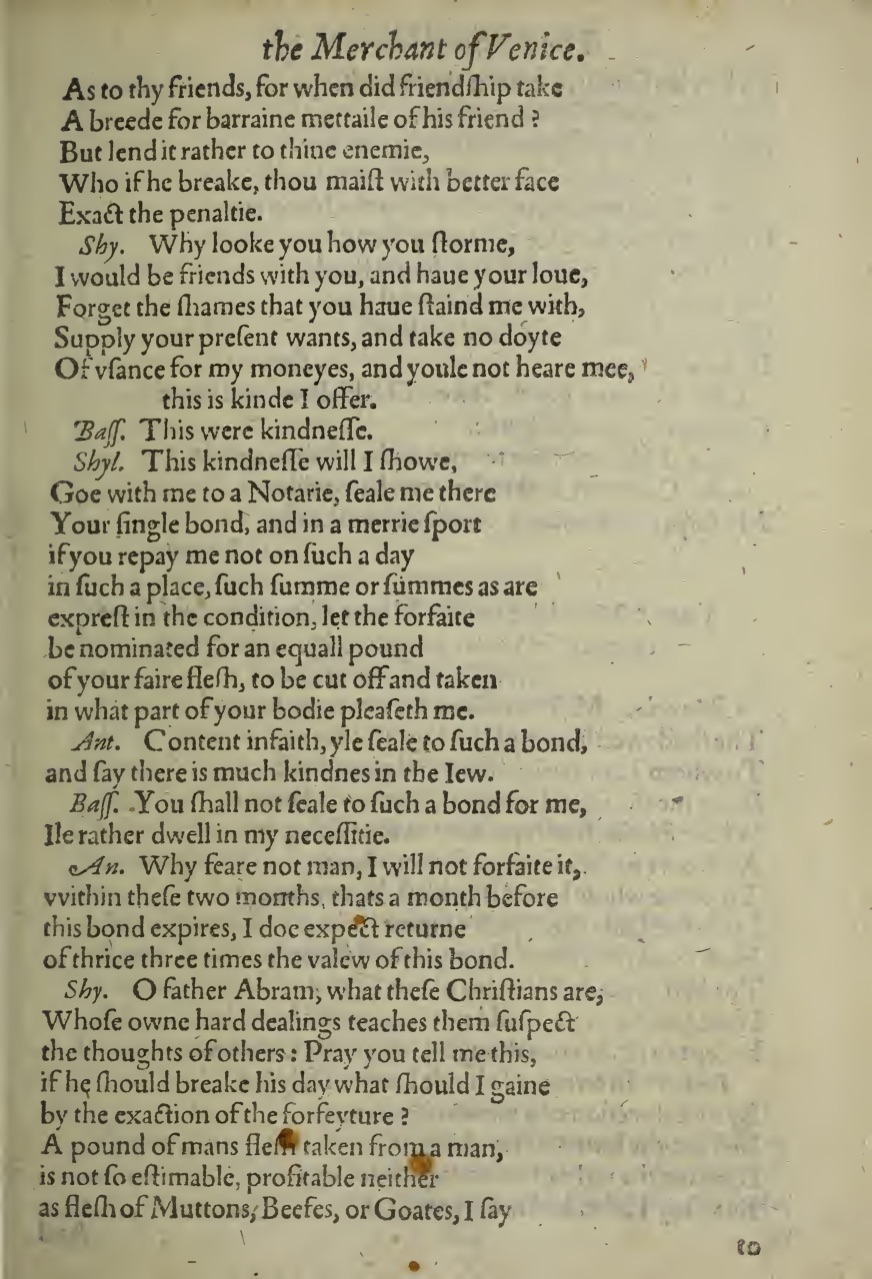the Merchant of Venice.
As to thy friends, for when did friendship take
A breede for barraine mettaile of his friend?
But lend it rather to thine Enemie,
Who if he breake, thou maist with better face
Exact the penaltie.
Shy. Why looke you how you storme,
I would be friends with you, and have your love,
Forget the shames that you haue staind me with,
Supply your present wants, and take no doyte
Of usance for my moneyes, and youle not heare mee,
this is kinde I offer.
Bass. This were kindnesse.
Shyl. This kindnesse will I showe,
Goe with me to a Notarie, seale me there
Your single bond, and in a merrie sport
if you repay me not on such a day
in such a place, such summe or summes as are
exprest in the condition, let the forfaite
be nominated for an equall pound
of your faire flesh, to be cut off and taken
in what part of your bodie pleaseth me.
Ant. Content infaith, I’ll seale to such a bond,
and say there is much kindnes in the Jew.
Bass. You shall not seale to such a bond for me,
Ile rather dwell in my necessitie.
An. Why feare not man, I will not forfaite it,
within these two months, thats a month before
this bond expires, I doe expect returne
of thrice three times the valew of this bond.
Shy. O father Abram, what these Christians are,
Whose owne hard dealings teaches them suspect
the thoughts of others: Pray you tell me this,
if he should breake his day what should I gaine
by the exaction of the forfeyture?
A pound of mans flesh taken from a man,
is not so estimable, profitable neither
as flesh of Muttons, Beefes, or Goates, I say
